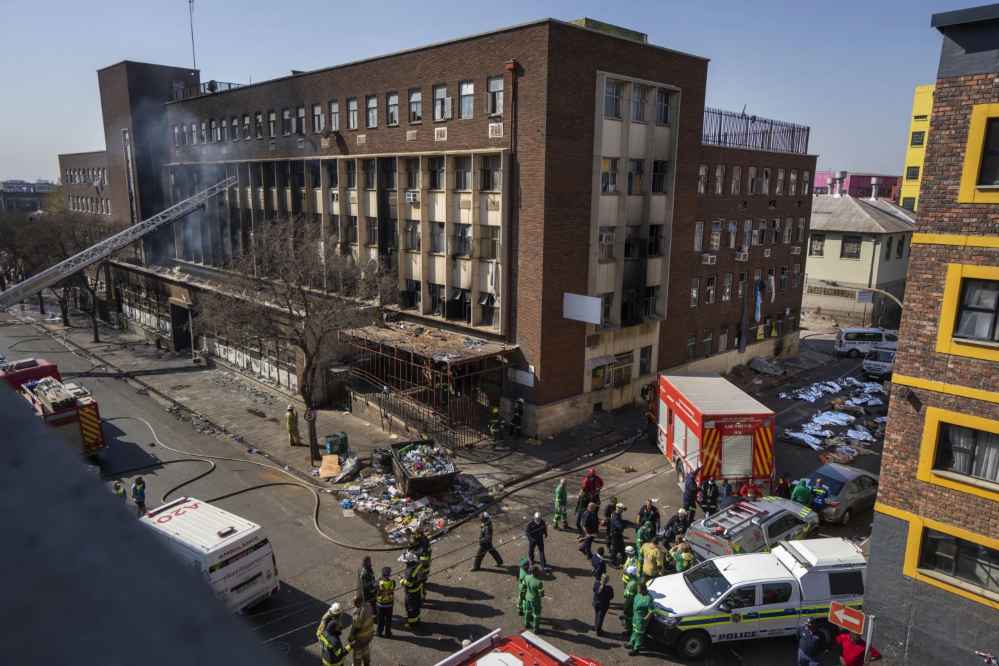GERALD IMRAY
A man was arrested Tuesday and will face 76 counts of murder after telling an inquiry that he started a deadly building fire in South Africa last year while trying to get rid of the body of someone he had strangled in the apartment complex on the orders of a drug dealer.
The shocking confession came when the man was testifying at the public inquiry into the causes of the nighttime fire in Johannesburg in August, which was one of South Africa’s worst disasters with its death toll of 76.
The 29-year-old man, who wasn’t named, said he had killed a man in the basement of the rundown building on the night of the fire by beating him and strangling him, according to South African media reports of the testimony. He said he then poured gasoline on the man’s body and set it alight with a match.
He testified that he was a drug user and was told to kill the man by a Tanzanian drug dealer who lived in the building.
Hours later, police said they had arrested the man after his testimony. He is also facing 120 counts of attempted murder and a charge of arson, police said in a statement. He would appear in court in Johannesburg soon, police said, without giving a date.
The inquiry he was testifying at isn’t a criminal proceeding and his confession came as a complete surprise. The inquiry is looking into what caused the fire and what safety failures might have resulted in so many people dying, and he testified because he was a resident of the building.
The panel in charge of the inquiry ordered that he not be identified after his testimony and a lawyer leading the questioning of witnesses said that his confession couldn’t be used against him because it wasn’t a criminal hearing.
South African media referred to him as “Mr. X” when reporting on his claim that he caused the fire that ripped through the dilapidated five-story building in the city’s Marshalltown district, killing dozens, including at least 12 children. More than 80 people were injured.
The fire drew the world’s attention to downtown Johannesburg’s long-running problem with “hijacked buildings,” rundown structures that have been taken over by squatters and abandoned by authorities. There are many of them in the old center of the city, officials say, illustrating the decay of parts of South Africa’s largest city and one of the African continent’s most important economic hubs.
The city of Johannesburg owned the building, but it had been taken over by illegal landlords, who were renting out space to hundreds of poor people desperate for somewhere to live. Many of the building’s occupants were immigrants suspected of being in South Africa illegally.
It also sparked anger in South Africa that authorities should seemingly be so powerless to stop the illegal takeover of such buildings.
In his testimony, Mr. X said that the building was a haven of criminality and was being run by drug dealers. He also claimed there were more bodies in the basement of the building — which he called a “slaughterhouse” — before the fire.
South African police opened a criminal case in the days after the fire five months ago but no one had been arrested until Tuesday.
Emergency services officials said that they found most of the fire escapes in the building had been locked or chained closed that night, making it even deadlier. Some people jumped out of windows — some as high as three floors up — to escape the inferno, according to witnesses and health officials.
Some said they had to throw their babies and children out, hoping they would be caught by people below. Many of the injured suffered broken limbs and backs from jumping out the windows.
South African President Cyril Ramaphosa ordered the inquiry into the disaster, which started in October by hearing testimony from emergency services personnel who first responded to the fire in the early morning hours of Aug. 31.
AP

